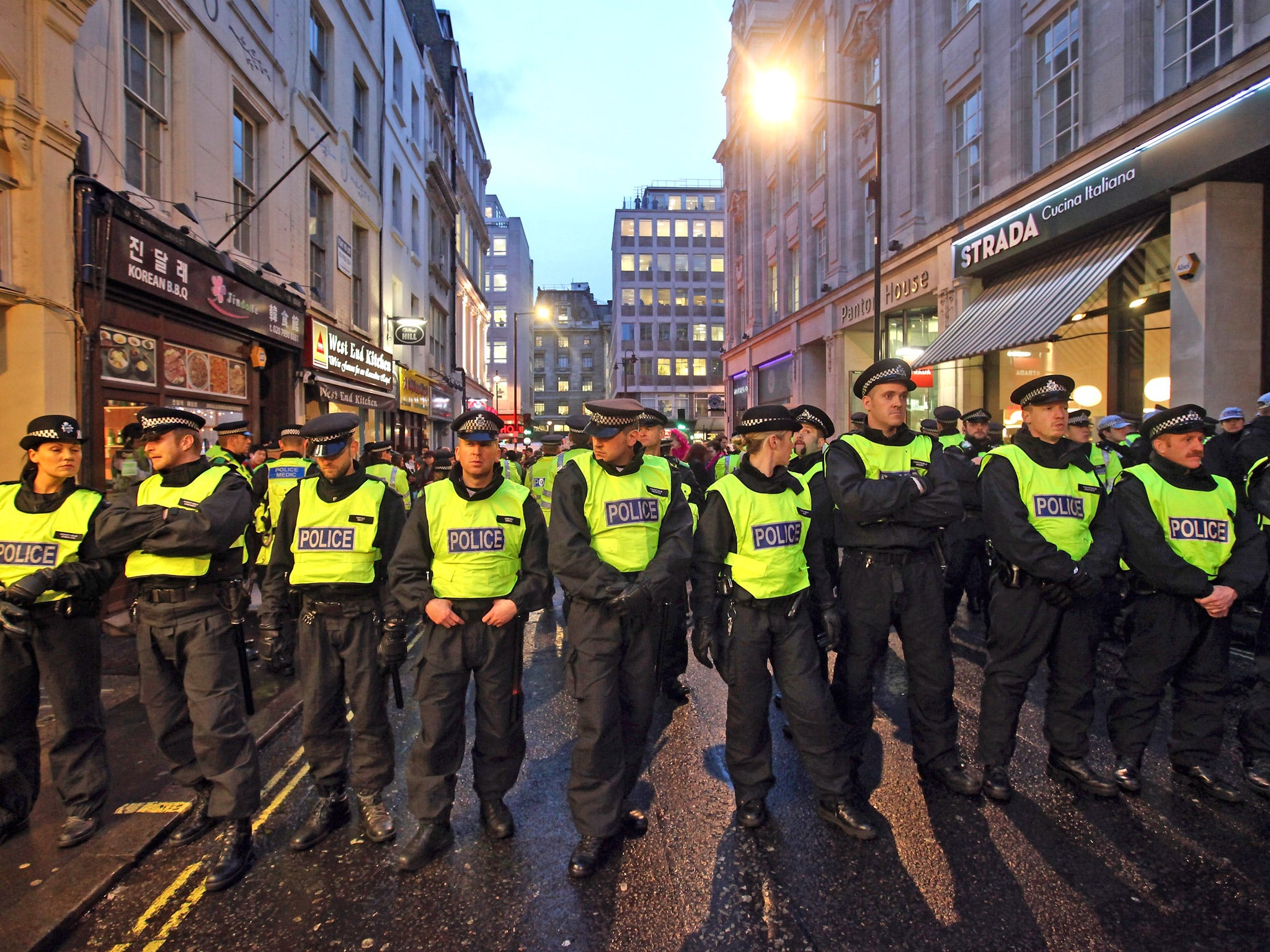Police acted unlawfully in demanding legal observer hand over personal details and submit to filming after being kettled in trade union protest
Campaigners claim High Court victory will force police to rethink their approach to demonstrations

Police acted unlawfully when they demanded that a legal observer who was kettled during a protest hand over her personal details and allow them to film her before she would be permitted to leave, the High Court has ruled.
Campaigners are claiming that the victory will force police to rethink their approach to demonstrations.
Susannah Mengesha said that the policing of the protest, which was run by trade unions and groups such as Occupy London, in November 2011 was “oppressive, aggressive and intimidating”. And two judges agreed with her today that police should never have forced her to hand over the information and should now delete it.
Around 100 people were trapped in a kettle in London’s West End by police after some of their number tried to occupy a building. After around 90 minutes, police started letting people leave in single file but required them to give their names, addresses and dates of birth, as well as to be filmed from head-to-toe.
“The police must now change their practices in terms of how they release people from kettles. The normal practice of demanding details and photographing people must now stop and it is long overdue,” said Val Swain of Police Monitor, which scrutinises the policing of demonstrations.
She added: “The issue with kettles has always been that you are containing people who have committed no offence and are not likely to – it is a preventative measure. They can get the names and addresses of everyone in there; often that is everyone who has attended a particular protest.”
She said that, with that information, police could begin to build profiles of people based on their political activity.
The dispute in today’s case was whether the Met Commissioner was correct in asserting that Ms Mengesha “voluntarily gave her particulars and submitted to filming”, or whether co-operating was “the price of release”.
Lord Justice Moses said no-one disputed that the containment itself was justified because serious damage and a breach of the peace had occurred and officers “reasonably apprehended a further breach of the peace”.
The judges ruled that the claimant Ms Mengesha did not act voluntarily when she handed over the information, as police argued, and Lord Justice Moses and Mr Justice Wyn Williams ruled they had acted outside their powers in demanding it.
Lord Justice Moses said: “The absence of any statutory power to obtain identification in the circumstances in this case establishes conclusively the unlawfulness of the police action in requiring [Ms Mengesha] to be filmed and give her name and address and date of birth before she was released from containment.”
Ms Mengesha, a law graduate and caseworker at the Bar Pro Bono Unit, was corralled in a crowd of protesters for two hours at the march, which started at Lincoln’s Inn Fields in central London, proceeded to Piccadilly Circus in the West End. Police said the containment was “necessitated by a reasonably apprehended imminent breach of the peace”.
The case comes after peaceful protester John Catt won his fight to have the police delete all of the data it has stored on him. Mr Catt was under police surveillance for years, despite never having been convicted – or even suspected - of any crime in relation to protests he has attended.
Lord Justice Moses said it had been intended that the film identifying the protesters should be retained on CDs for six years. The period was chosen because it was the limitation period for civil action claims for false imprisonment and malicious prosecution.
Demonstrators were filmed “individually in close-up, from front and back” and the images linked with their personal details. In those circumstances, Article 8 of the European Convention on Human Rights, which protects private and family life, became engaged, said the judge.
A Metropolitan Police Service spokesman said later: “We are aware of the judgment today and will now give it our full consideration and take forward any learning.”
